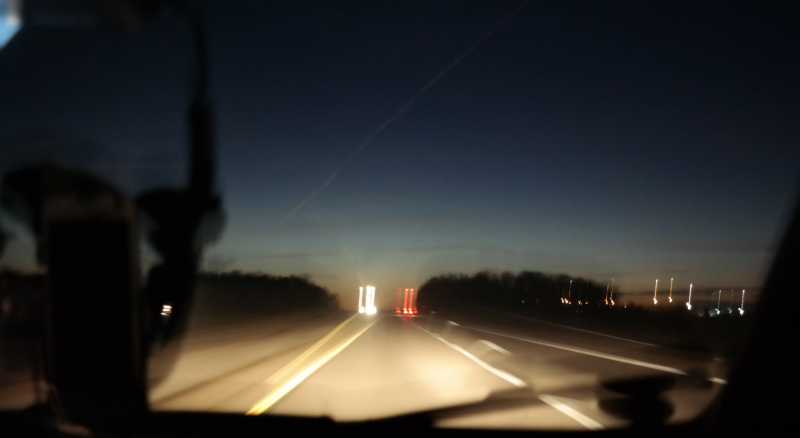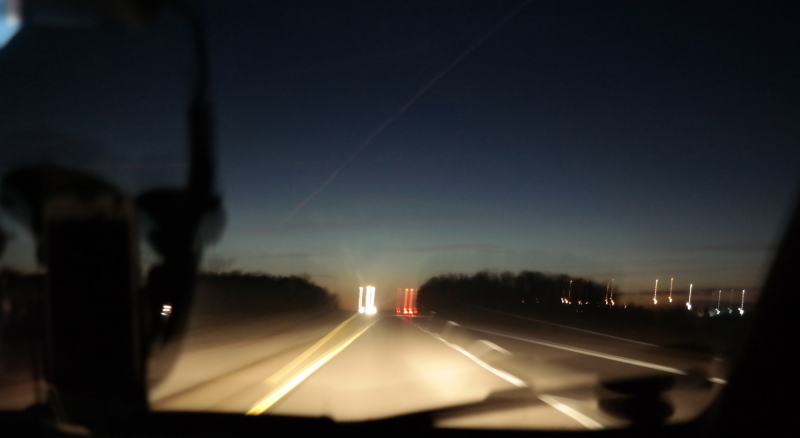Some symptoms I’ve experienced and which are good to keep in mind, especially during summer road-trip season, in approximate order of onset and degree of severity:
Hurtling along. That’s what I call it anyway— a sense that you’re no longer ahead of traffic and road phenomena you’d ordinarily take in stride. Often an early symptom of fatigue, though it can also be caused by medication, the disease for which you’re taking the medication, or other things that put you off your “A” game. Slow down, take it easy, and consider the possibility that you need to call it a day early.
Problems with attention and focus compared to your usual. Just spent 50 miles thinking that you need to gas up, then blew right past an interchange with a gas station? Got reminded by a long blast from somebody’s horn that you really should check your mirrors before changing lanes? Starting to buzz the rumble strip or pound over the drunk bumps from time to time? Having the same three-quarters of a thought over and over but can’t quite close the deal? Maybe you’re overtired.
Big yawns. They’re there for a reason. You might just need to pull over, get some fresh air, and move the big muscle groups and long levers, but they probably mean you’re tired.
Microsleep — those are those split second brain zaps when you’re really tired. This is a last ditch indication that you should use emergency measures (sing along with the radio, roll down a window, put body parts into a somewhat painful stress position, whatever) to get to the first safe place to pull over. Ideally don’t push it to this point at all. Microsleep soon turns into plain old sleep and next thing you know there’s an inexplicable accident, hopefully single-car but not always so, starring: you!
The good news: you may ultimately need a full night’s sleep, but even a good nap, or a sequence of them as needed, can be highly restorative.
See for instance
http://sleepcenter.ucla.edu/drowsy-driving
http://www.cdc.gov/features/dsdro…














